Transcription of FEDERAL ENERGY REGULATORY COMMISSION …
1 162 FERC 61,109 UNITED STATES OF AMERICA FEDERAL ENERGY REGULATORY COMMISSION Before Commissioners: Kevin J. McIntyre, Chairman; Cheryl A. LaFleur, Neil Chatterjee, Robert F. Powelson, and Richard Glick. Piedmont Municipal Power Agency v. Duke ENERGY Carolinas, LLC Docket No. EL17-83-000 ORDER GRANTING COMPLAINT AND ESTABLISHING HEARING AND SETTLEMENT JUDGE PROCEDURES (Issued February 15, 2018) 1. On August 10, 2017, Piedmont Municipal Power Agency (Piedmont) filed a complaint and motion for summary disposition against Duke ENERGY Carolinas, LLC (DEC) under sections 206 and 306 of the FEDERAL Power Act (FPA)1 (Complaint). In the Complaint, Piedmont alleges that DEC has assessed and collected charges in violation of the service agreement between the parties on file with the COMMISSION , as the rate schedule governing the service in question, and therefore, violated the filed-rate doctrine.
2 In this order, we grant the complaint and set the service agreement at issue in this proceeding for hearing and settlement judge procedures. I. Background A. Backstand Service Agreement 2. Piedmont has an approximately 277 MW entitlement (through ownership or purchase) in Catawba Nuclear Station Units 1 and 2 and McGuire Nuclear Station Units 1 and 2. Piedmont explains that, since the units at Catawba and McGuire are not always available, it requires Backstand Service for planned and unplanned outages of the units and for temporary reductions in unit capability. Piedmont states that, on 1 16 824e, 825e (2012). Docket No. EL17-83-000 - 2 - December 28, 2010, it entered into a power purchase agreement with DEC (Original Backstand Agreement), which provided for Piedmont to purchase capacity and ENERGY from DEC in order to obtain Backstand Service for Piedmont s entitlements to capacity and ENERGY from the Catawba and McGuire Stations.
3 Piedmont explains that the Backstand Service Agreement was amended and restated and filed with the COMMISSION , and became effective on January 1, 2014 (Backstand Service Agreement).2 The formula rate at issue in this case was the same in both the Original Backstand Agreement and in the Backstand Service Agreement. Piedmont notes that the Original Backstand Agreement will remain in effect for an initial term of seven years unless terminated earlier in accordance with the agreement s early termination provisions. B. Summary of Complaint 3. Piedmont contends that, in its May 2015 true-up of the 2014 charges for Backstand Service, DEC began to amortize deferred costs that arose from decisions of the North Carolina Utilities COMMISSION (NCUC) and the South Carolina Public Service COMMISSION (SCPSC) (Deferred Costs). Piedmont argues that DEC violated the Backstand Service Agreement by charging these Deferred Costs to Piedmont, because the Backstand Service Agreement requires DEC to make a filing with the COMMISSION under FPA section 205 before including these Deferred Costs in its charges to Piedmont.
4 Piedmont states that DEC never made a filing with the COMMISSION prior to including and collecting the Deferred Costs. Piedmont argues that the Deferred Costs arise solely from actions of DEC s retail regulators and that the COMMISSION did not approve the deferrals. Therefore, Piedmont contends, DEC s inclusion of the Deferred Costs in its charges to Piedmont was unlawful. Piedmont requests that DEC be directed to refund, with interest, all such charges, and to stop including these costs in its charges to Piedmont until such time that the COMMISSION makes a finding, following a section 205 filing by DEC, that the costs are properly allocable to Backstand Service and that the inclusion of these costs in DEC s charges to Piedmont is just, reasonable and not unduly discriminatory. 4. Piedmont states that the dispute underlying the Complaint arises from DEC s application of provisions of Schedule 1 of the Backstand Service Agreement that relate to the amortization of Deferred Costs.
5 Specifically, Piedmont objects to DEC s amortization of the Deferred Costs based on the Schedule 1 provisions that pertain to costs recorded in FERC Account 406, Amortization of Electric Plant Acquisition Adjustments, and 407, Amortization of Property Losses, Unrecovered Plant and REGULATORY Study Costs, that are assigned or allocated to the Production function. 2 The Original Backstand Agreement was revised to protect Piedmont from any potentially negative effects that may result from the 2012 merger of Duke ENERGY Corporation and Progress ENERGY , Inc. Complaint at 6, Docket No. EL17-83-000 - 3 - Piedmont explains that DEC is amortizing a portion of the Deferred Costs through Schedule 1 charges to Account , REGULATORY Debits, but is doing so without a COMMISSION determination that the costs are properly chargeable to wholesale generation service and without including the unamortized balances in FERC Account , Other REGULATORY Assets, in rate base.
6 5. Piedmont states that the Deferred Costs were costs that DEC incurred in previous years in connection with a variety of projects and activities but that, for timing and other reasons, were not being recovered through DEC s then-effective retail rates. Piedmont further states that both the NCUC and the SCPSC granted permission for DEC to record the costs as deferred debits based on the understanding DEC would include the Deferred Costs in its next retail rate filing and begin recovering the retail portion of the total deferral through its revised retail rates when those were placed into 6. Piedmont contends that, although DEC included charges in the 2014 true-up to amortize the Deferred Costs, DEC did not include the original or unamortized balances of the deferrals in the Production Investment Base as Other REGULATORY Assets/Liabilities. 4 Piedmont argues that, by choosing not to include the unamortized amounts in the Production Investment Base, DEC avoided the contractual requirement set forth in paragraph (o) of Schedule 1 that it make a section 205 filing before including Other REGULATORY Assets/Liabilities in the Backstand Service Agreement rate 7.
7 More specifically, Piedmont contends that the Backstand Service Agreement requires a prior filing before charges to amortize Deferred Costs may be included in the formula rate. Piedmont states that this requirement arises through the contract s reference to Account 407 as the basis for any such charges. Piedmont states that because charges to Account must be based upon a corresponding credit to Account , it follows that the prior filing requirement for use of Account must be satisfied for DEC to use Account Piedmont argues that Account and are inherently tied together in the uniform system: the first is the balance sheet item reflecting the existence of a REGULATORY asset and the second is the income statement 3 Complaint at 13. 4 Id. at 19 (citing Exhibit PMP-1 at P 22). 5 Id. at 19-20. 6 Id. at 26-27. Docket No.
8 EL17-83-000 - 4 - item that is charged by the amount that the asset is credited, once rate recovery has been 8. Piedmont states that the COMMISSION has always drawn a distinction between approval for accounting purposes and approval for rate recovery It argues that COMMISSION approval is required for the recovery of Deferred Costs through rates even if the accounting criteria for inclusion in Account are satisfied. Piedmont argues that, consistent with that policy, the Backstand Service Agreement recognizes that, DEC may account for certain costs as REGULATORY assets or liabilities, but DEC must file a section 205 filing for approval of any amount prior to including them in rate Piedmont states that DEC s failure to file for approval under section 205 prior to recovering these Deferred Costs indicates that the costs are not properly allocable as to DEC s provision of wholesale service under the Backstand Service 9.
9 Piedmont contends that DEC s approach to accounting under the Backstand Service Agreement is inconsistent with COMMISSION accounting rules and reporting on FERC Form No. 1. Piedmont explains that DEC did include the Deferred Costs in the balances reported as Other REGULATORY Assets (Account ) on pages of its 2014 FERC Form No. 1 and its 2015 FERC Form No. 1. Therefore, Piedmont states that DEC s disclosure accounting for the Deferred Costs was internally consistent, in that the amortization shown in the FERC Form No. 1 income statement tied back to the deferred asset on the FERC Form No. 1 balance sheet. However, Piedmont argues, there is no internal consistency with respect to DEC s accounting underlying its rates for Backstand Service under the Backstand Service Agreement. Piedmont contends that DEC included amortization of these Deferred Costs as Production Related Other Amortization Expense in the calculation of Backstand Service rates without there being a related asset in the Production Investment Base.
10 Piedmont argues that there is no reason for the Backstand Service Agreement rate calculations to differ from DEC s FERC Form No. 1. Piedmont contends that it appears that DEC s intent is to avoid the contractual requirement for a section 205 7 Id. at 27-28. 8 Id. at 23. 9 Id. at 24 (citing Backstand Service Agreement, Schedule 1, Sec. (o), Ex. No. PMP-3 at 69). 10 Id. at 26. 11 Id. at 31-32. Docket No. EL17-83-000 - 5 - 10. In the alternative, should the COMMISSION not determine that DEC was required to make a section 205 filing prior to recovering the costs at issue, Piedmont argues that the COMMISSION should find that the costs were not properly allocable to the Backstand Service Agreement. Piedmont argues that DEC was obligated to file to include its cost-of-service for ratemaking purposes as soon after their incurrence as possible to avoid temporal cost Piedmont argues that some of the costs recovered in 2014 by DEC were incurred substantially earlier, which violates COMMISSION policy.
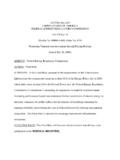
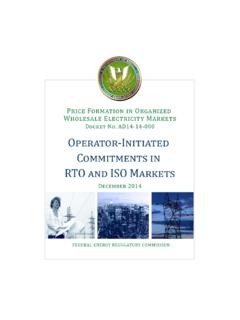
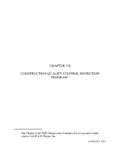
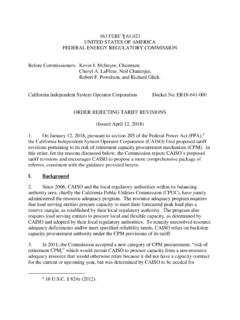

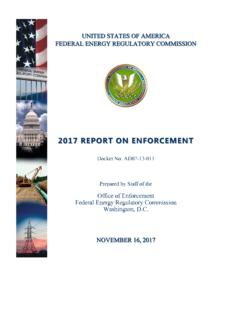
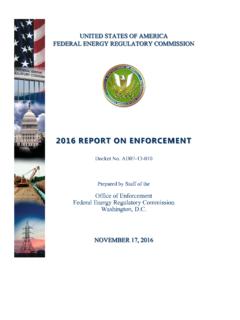
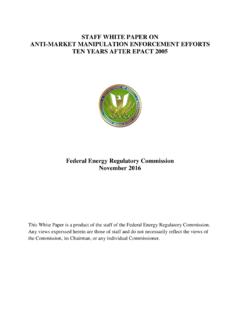
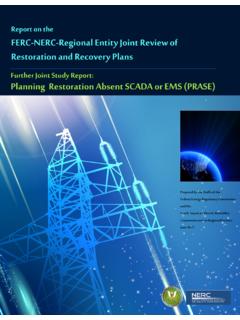
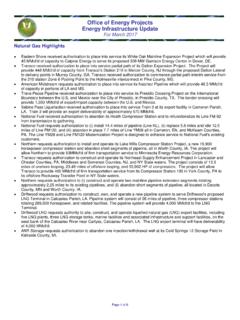
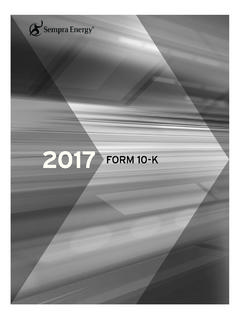
![Crown Hydro Term Sheet[1]](/cache/preview/8/e/d/7/2/7/4/9/thumb-8ed727496d7da8b9fd30399247e471a5.jpg)


